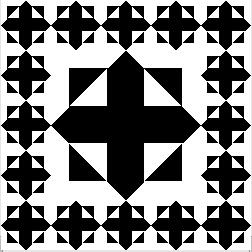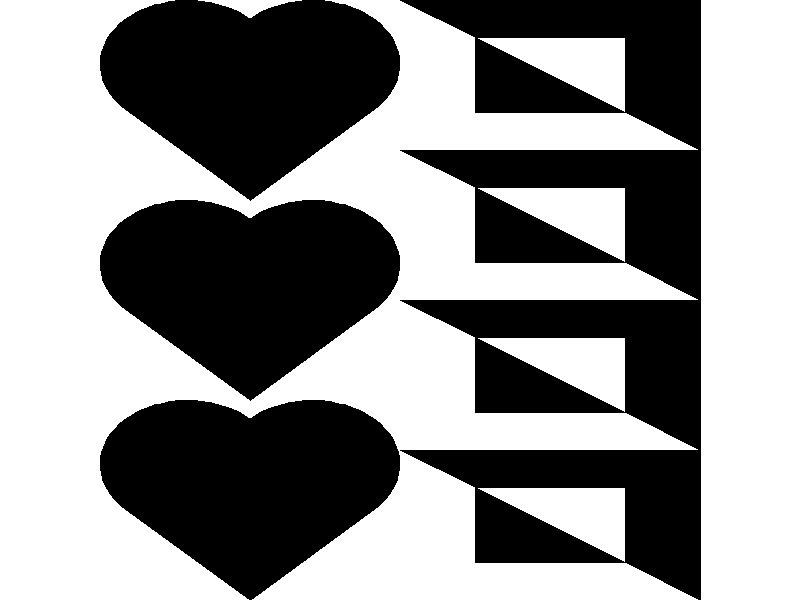Mission Brief 2: Runic Runes (Egyptian)
In this mission, you will break a big problem down into parts from the 'top' downwards, in order to construct a solution bottom-up.
Before you break a problem down, you will need (1) some idea on which "lines" you can break a problem down along and (2) what the atomic building blocks are. Take this image from an earlier mission for example:

We first need to know that the functions stack and beside are available to us before we know that two "legal moves" are to break the picture into (1) top and bottom halves, and (2) left and right halves. After we have written the function mosaic, we can add mosaic to our collection of "legal moves", that is, we can break runes into quarters directly.
After this one step of decomposition, we can ask ourselves whether the decomposed parts (in this case, the halves) are indivisible units (in this case, building blocks like rcross_bb, nova_bb and sail_bb). If the parts are composite (i.e. not indivisible), we again consider how we can break them down using "legal moves".
Before you start the mission
So, before you start the mission, please familiarise yourselves with the tools in your toolbox. Here is a list of functions from the "Rune Reading" mission,
quarter_turn_right
eighth_turn_left
flip_horiz
flip_vert
turn_upside_down
quarter_turn_left
make_cross
repeat_pattern
stack
stack_frac
stackn
beside
After the "Rune Reading" mission, you would have added simple_fractal and mosaic to your toolbox. You are free to add more of your own functions, even if the missions do not require you to.
Also, you might want to identify all the rune building blocks that you can use to test your functions with. For your convenience, they are:
black_bb
blank_bb
circle_bb
ribbon_bb
heart_bb
pentagram_bb
rcross_bb
corner_bb
sail_bb
nova_bb
Where do I start?
What "legal moves" can you use to break the picture up? :

Say we want to use stack_frac to attach the top row to the rest of the picture, then we would need to create the two parts that we want to combine together:


Now we have two easier problems to solve.
Means of Abstraction
You can give names to pictures that you compose. For example, this code snippet
hearts = stackn(3,heart_bb)
rcrosses = stackn(4, rcross_bb)
hearts_and_rcrosses = beside(hearts, rcrosses)
produces

Use meaningful names to make your code more understandable.
Putting runes side-by-side
Observe that we have three stacking functions (stack, stack_frac &stackn), but only one function (beside) to put runes beside each other.
How then is it possible to create the "Top Row" mentioned earlier?
Just like mosaic, you can add the 'beside' equivalent of stack_frac and stackn to your collection of functions. We implement the two functions by imitating how beside was defined. From the lecture slides:
def beside(rune1, rune2):
return quarter_turn_right(
stack(quarter_turn_left(rune2),
quarter_turn_left(rune1)))
Observe that beside is defined in terms of stack using a rotate-transform-unrotate pattern. Imitate this.
Your turn
Using the basic functions listed here, try to compose the Egyptian rune by building it up from smaller parts.